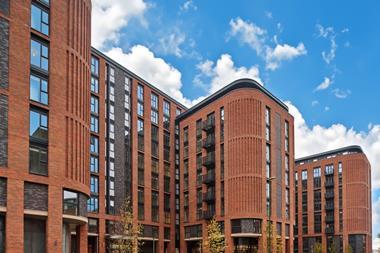Recently, several mainstream media channels have covered the health of the UK rental market and the plight of renters across the country. From rising rents to lack of stock, high demand, poor-quality homes and generally bad experiences, the image of landlords has taken a further bashing.

We have all been shocked by the terrible scenes of damp and mould and poor conditions that some tenants have had to live with, and I wholeheartedly support any campaign that shines a light on improving standards for renters. The problem is the negative rhetoric that goes with this so often casts all landlords in a similarly negative and unjust light.
While it’s often reported that nobody loves, or even likes, their landlord, we see something different. At Grainger, Net Promoter Score (NPS), our primary measure of customer satisfaction, has progressively improved, rising 16 points to 34 in 2022, ahead of the likes of Google, Nike, Coca-Cola and Amazon, with 90% satisfaction and nine out of 10 residents saying they really like their home. This shows people can and do like their landlord and what they think and feel about their experience with us is positive, but the investment that goes into keeping our customers happy goes way beyond rent, repairs and amenity. It’s much more about service and a sense of community.
Sadly, rather than helping the housing crisis, which is ultimately the result of an undersupply of good-quality rental homes, this age of landlord bashing is further exacerbating the situation, and smaller landlords are increasingly leaving the market. According to Zoopla, 13% of homes listed for sale on the site in 2022 were formerly rented and 31% of small landlords plan to sell one or more of their rental homes. Coupled with that, data from the English Private Landlord Survey 2021 suggests most landlords are over 55 (the median age being 59), with new buy-to-let landlords not coming through, most likely because many younger demographics are priced out.
Small landlords absolutely still have their place in the sector but many have switched over to Airbnb and short-term rentals, and others are exiting completely. This deterioration in competition comes at a time when volumes in build to rent are also not coming forward as quickly. At the same time, supply is further pressured by people renting for longer, with many outpriced from buying or waiting for interest rates to fall.
The rental market is so important. With a good-quality home at the centre of a good life, a lack of available housing prices people out of the areas in which they want to live, affects the appeal of a town or city, drives talent and graduates away, affects labour supply and productivity and ultimately deters investment.
The solution to the rental crisis is simple. We need more good landlords believing in the long-term potential of the sector, providing more rental homes.
Helen Gordon is chief executive of Grainger































No comments yet